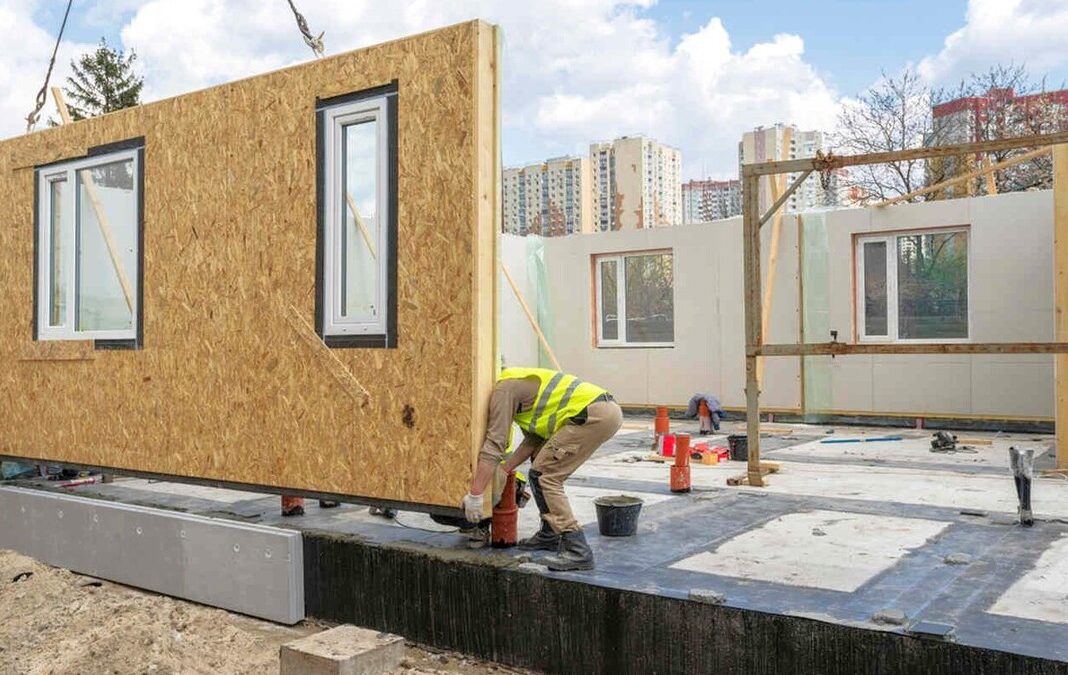Modern Construction Could Fuel Infrastructure Boom in Developing Economies
Sustainable construction through modern methods can bridge financing gaps, speed up infrastructure and boost local growth.
Modern methods of construction could help developing economies fund schools, hospitals and transport, driving sustainable construction, boosting local growth and delivering higher-quality infrastructure, according to KPMG.
MMC refers to modular, panelized and other off-site building systems that streamline delivery. By moving much of the work away from construction sites, projects can be completed more quickly while ensuring consistent standards.
“Current financing models are not achieving the scale or speed required to deliver essential infrastructure,” said Kevin Masters, partner at KPMG’s Major Projects Advisory, in an article published on the World Economic Forum website.
He added that blended finance, tied to clear goals, could help close the $2.5 trillion annual investment gap identified by the OECD.
Sustainable Construction as a Development Tool
Masters said MMC should be viewed as a development tool, not just a building technique. “By standardizing delivery and simplifying site activities, MMC can speed up projects while improving quality and reinforcing cultural identity,” he said.
The iconic 27-storey Mapleton Crescent modular high-rise in London illustrates the concept. The building rose at one storey per day. At the same time, it featured ceramic finishes crafted by local artist Lorraine Rutt, showing that rapid delivery does not mean sacrificing local character.
For emerging economies, where short-term fixes often dominate, MMC offers a route that strengthens skills, commerce and long-term resilience.
Blending Local Capacity With Global Standards
Public capital remains scarce in many developing countries, leading to a significant reliance on external financing. Yet funders want clear governance and traceability.
MMC can provide both. Internationally manufactured systems guarantee quality, while local firms contribute with civil works, drainage and foundations. This phased model balances international capability with local involvement.
The approach creates jobs, builds supply chains and reassures investors. Digital tools such as blockchain can track progress and link financing directly to verified milestones, ensuring subcontractors are paid on time.
Tackling Skills Shortages and Security Risks
A Turner and Townsend study found that 80 percent of 91 construction markets reported skills shortages as a barrier to public infrastructure. In fragile regions, security concerns add to the difficulty.
Masters pointed to GlaxoSmithKline’s “Factory in a Box” as an example of MMC’s flexibility. A team of former Gurkhas, with no prior construction experience, built a pharmaceutical facility in just four weeks. The project cut delivery schedules by two-thirds and reduced costs by 30 percent.
“This shows how replicable MMC processes can unlock rapid delivery in challenging environments,” Masters said. In conflict or disaster-hit areas, that speed can restore access to essential services when it matters most.
Scaling Up Sustainable Construction
The UK offers examples of MMC in action. In Liverpool, the approach has been applied to both new and existing housing stock. The result has been lower energy costs for residents and increased local job opportunities.
Real estate services provider Savills has informed the UK Parliament that MMC raises housing standards and avoids the trade-off between speed and safety. Poorly managed rapid construction often leads to higher costs over time; however, MMC can maintain quality while accelerating delivery.
Masters said scaling requires active collaboration. “Sustainable construction can only succeed if governments, financiers and contractors align delivery models with development goals,” he said. Governments and development finance institutions must also provide incentives for international firms to invest locally.
In practice, this could include tax breaks or financing packages for companies that set up factories, train workers and create domestic supply chains. Once stability is established, financing can evolve to support longer-term growth.
Long-Term Gains for Communities
MMC does more than shorten schedules. It creates safer housing, faster access to clinics and schools, and improved resilience in vulnerable communities.
Masters noted that training linked to MMC projects can open job pathways for underemployed groups. Local businesses can enter supply chains, from basic site work to advanced manufacturing. “Sustainable construction can break the cycle that prevents economies from building essential infrastructure,” he said.
KPMG is a partner of the Davos Baukultur Alliance, a group of public and private stakeholders dedicated to improving urban life and built environments. The alliance promotes resilience, equity and sustainability in communities worldwide.
Masters said MMC aligns with those objectives. “It can deliver infrastructure faster, build skills locally and ensure that investments achieve lasting impact,” he added.
As economies recover from crises, the demand for essential infrastructure will only grow. MMC offers a way to combine new financing models with modern delivery tools, creating a more transparent and effective system.
Masters summed up the opportunity: “If we embrace sustainable construction, we can close the infrastructure gap and create stronger, fairer societies.”
Also Read:
Finland’s Kiilto Tests Reusable Adhesives to Boost Circular Construction
Nirmal Menon
Related posts

Subscribe
Error: Contact form not found.


